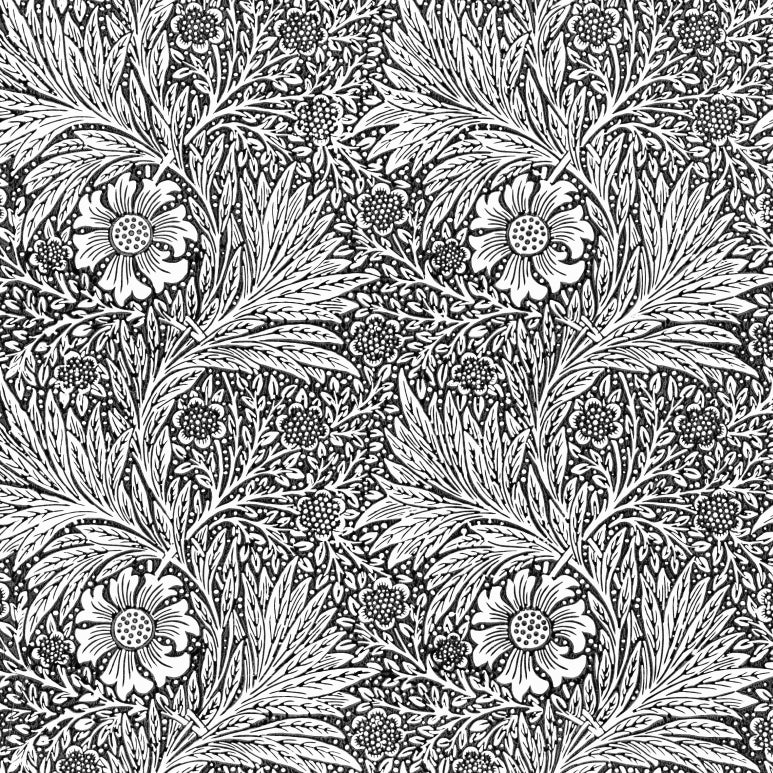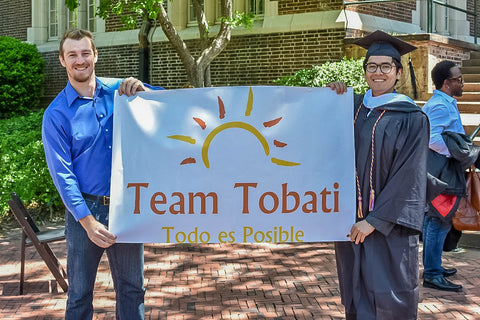Bati Story
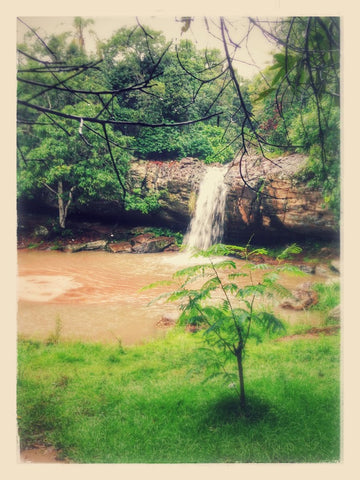
Preface:

Chapter 1: Origins
In 2011, after graduating from Boston College, Bati co-founder Taylor Ross traveled to Tobatí, Paraguay for the first time. He had signed on to teach English at El Colegio Reinaldo Macchi, a school for students in grades 7-12. Funded by Team Tobati, a Connecticut-based non-profit, "The Macchi School" provides full scholarships, daily meals, and healthcare to gifted children from economically-disadvantaged backgrounds.
Ross was moved by his work with the students at the Macchi School. What began as a three-month trial blossomed into a three-year adventure. He was amazed at the sheer drive of the students and their unique ability to manage the institution’s rigorous curriculum while living in such dire circumstances at home.
Chapter 2: Todo es Posible
Ross quickly developed a close bond with a Macchi student named Joel Unzain. As Ross puts it, Unzain’s work ethic and ambition “opened my eyes up to the rest of the world.” After Unzain shared his dream to one day study at a university in the United States, the student and his teacher worked tirelessly for a year a half to prepare Unzain for the extensive college application process.
“Here was a kid who studied for the SATs by candlelight when the electricity cut out during a storm,” Ross recalls. “He would call British Airways on Skype and pretend to be interested in a flight just to practice his English. The kid dreamed of a life that most of us here in the U.S. take for granted, and that shook me a bit. He needed to succeed, and I went all in on trying to make that happen."
Joel's hard work paid off. He received full academic scholarships to study at six prestigious American universities. He ultimately enrolled at the University of Pennsylvania in the fall of 2013. On May 15, 2017 (Paraguayan Independence Day), Joel graduated with a Bachelors degree in Computer Science and Cognitive Science, and a job offer from Comcast to work as an engineer in the Silicon Valley.
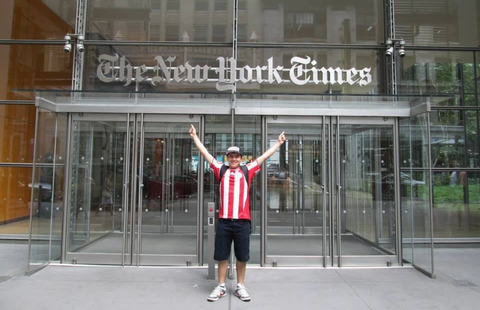
Joel defied the odds, and his story has since spread to the masses of Paraguayan students who dream of achieving a higher education and leading their families out of poverty. His success has challenged others to push themselves and do things that they didn’t think were possible before.
Inspired by this sentiment and eager to reinforce the notion that todo es posible, in 2014 Ross and Macchi School Principal Darren LaFrenier biked across the United States in 54 days to raise money for the Macchi School. LaFrenier recounts the trip: "The enormity of the journey set in on day two when I couldn't get out of bed. But we learned to focus on our daily goals instead of getting overwhelmed by looking at the 75-mile stretches through barren West Texas. This mentality made it easier to bare the long rides and Taylor's nomad beard, among other things."
Chapter 3: Bati is Born
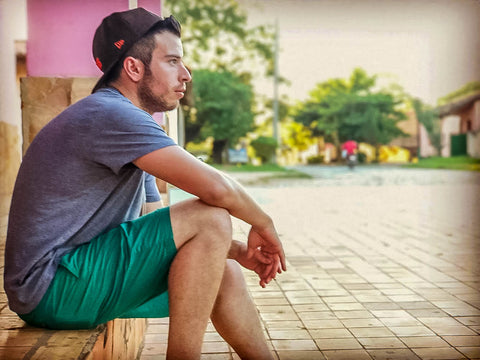
After the bike trip, Ross returned home to Los Angeles and built an app with his best friend, Jose Valladolid. The venture failed.
Wanting to create a company more connected to the physical than the digital world, the two started developing a blueprint for a line of leather goods hand-crafted using materials sourced directly from Paraguay. Since they would be chaperoning a group of high schoolers Team Tobatí sends to Paraguay each March for a volunteer program, Ross and Valladolid timed the initial production of the goods to their trip.
Stepping on foreign soil for the first time in his life, Valladolid, like Ross years earlier, was overcome by the willpower of the Macchi students. During their first two weeks in Tobatí, Ross and Valladolid conducted 12-hour workdays with their service groups and used their lunch hour to collaborate with local artisans on prototypes for the inaugural Bati line: backpacks, travel bags, duffels, wallets, purses, totes, belts, and coolers. Finding few moments to relax and dealing with the sweltering Paraguayan heat, the former varsity football teammates felt like they were back in high school, enduring the brutal summer workouts that prepared them for the upcoming season. “Coach Radenberg’s two-a-days were nothin’ compared to this!” Valladolid affirmed.
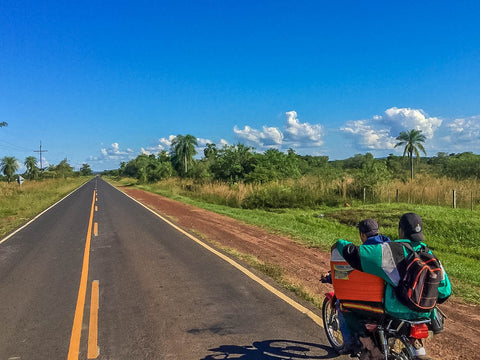
Once the service portion of the trip ended, Valladolid and Ross had more time to go off the grid and explore the vibrant landscapes and hidden pockets of the countryside. "We would find ourselves discovering these hidden waterfalls, places completely untouched by man. It was unlike anything I had ever seen before," Valladolid admits. "Endless palm groves for miles on each side, thousands of blinding stars above, with only bumpy dirt roads connecting all the magic." The two were inspired by the color palette of the natural landscape, and designed Bati products to reflect the distinct beauty of the land from which it came. "We wanted the green to hint at the allure of Tobatí, a glimpse into the diamonds in the rough at the Macchi School."
The group is committed to using a portion of Bati profits to create a scholarship fund to, "bring light to the Joels of the world," explains Ross. "The saddest thing for us is knowing that thousands of kids like Joel are out there grinding who won't ever get a shot because the cards are stacked against them from the start. Nelson Mandela said that no country could ever develop until its citizens were educated. He referred to education as the most powerful tool one could use to change the world. For us, Bati is that tool."


